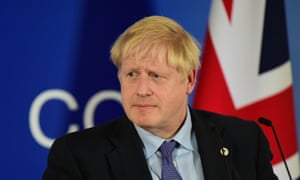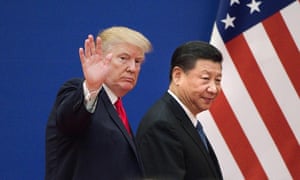After profiting from strong markets in 2019, investors are expecting 2020 to bring further rising asset prices and lively merger activity. But Brexit, the US presidential election and the US trade war with China could all spring nasty surprises over the next 12 months and give the long-running bull market a jolt.
The UK and Brexit
Relief that Brexit is resolved will be replaced by anxiety over the future relationship between Britain and the EU, with the transition period due to end in December 2020.
Dean Turner, a UK economist at UBS Global Wealth Management, predicts UK GDP will only rise by 0.9% in 2020, even weaker than the 1.2% in 2019.
“It’s possible that there will be some bounce in activity given the clarity on Brexit, but any improvement in sentiment is likely to fade as the next Brexit deadline draws closer,” Turner says.
Ruth Lea, an economic adviser to the Arbuthnot Banking Group, believes the UK will get a “fiscal boost” from the forthcoming budget, due in February. This could include an increase in the threshold for paying national insurance – in effect a tax cut.
“The economy has been facing the twin headwinds of Brexit uncertainty, which has almost certainly depressed business investment and could also have undermined the consumer, and the weaker global economy, especially in the eurozone. Having said that, there still seems to be growth,” Lea says.

The London stock market shrugged off Brexit anxiety during 2019 to post its best year since 2016. Several analysts predict it will rally in 2020 as relatively unloved UK shares are embraced by investors again.
Jeremy Podger, who manages Fidelity’s £2.7bn global special situations fund, says the City should benefit from the increased certainty created by the Conservative win in last month’s election.
“It appears to be the case that, in general, investors have been taking money out of the UK stock market since the referendum and that it is generally underrepresented in many international portfolios. This result could be a trigger for these investors to ‘neutralise’ their exposure while existing investors are unlikely to sell for now,” Podger explains.
But the prospect of fresh tough negotiations between London and Brussels over their future relationship will probably weigh heavily on sterling in 2020.
The UK could crash on to World Trade Organization trade rules in a year’s time if it cannot reach an agreement and refuses to extend the transition period. This would be “a significant step down from the current arrangement and an arrangement that investors fear will negatively impact the UK economy,” says Fiona Cincotta of City Index.
Takeovers in the UK
This year there could also be a rise in takeover activity. Jonathan Boyers, the head of mergers and acquisitions at KPMG, predicts a flurry of deals in the next six months now the UK has a stable government.
“Many of those who have been mulling over an exit have done their early prep work and are set to launch processes in the new year. Meanwhile, I expect there will be a significant amount of demand, keeping prices high, as the market makes up for some of the lost volume,” Boyers says.
Ben Higson, the head of the London corporate practice at law firm Hogan Lovells, also expects a “dynamic” mergers and acquisitions market in 2020.
“The removal of political uncertainty in the UK has resulted in early signs of confidence returning to deal-making activity, keeping boardrooms and other decision-makers busy in the final weeks of the year and, we expect, early in the new year,” says Higson.
Trump and US markets
Donald Trump’s attempt to win a second term is likely to dominate the headlines for much of the next 12 months.
Markets often do well in an election year – partly because the White House incumbent has every incentive to make people feel richer. Trump is rumoured to be considering a fiscal boost known as “tax cuts 2.0” which could lift his popularity, and stocks, before the November election.
Many investors have “priced in” a Trump re-election, says Edward Moya of the foreign exchange firm OANDA. A Republican win has been Wall Street’s “base case for a while”, so a Democratic win could startle the markets.
“Despite the strong economy, key battleground states such as Wisconsin, Ohio, Michigan and Pennsylvania all have Biden leading Trump in recent polls. A Biden presidency would still be positive for US stocks but perhaps a few percentage points lower than a Trump victory,” Moya points out.
But if Elizabeth Warren or Bernie Sanders were to beat Trump, tech stocks, banks and pharmaceuticals firms could all face tougher regulation, triggering a sell-off.
John Moore, a senior investment manager at Brewin Dolphin, says political concerns are already being priced into some stocks.
“Elizabeth Warren, for example, has made no secret of her feelings about Facebook and a desire to break up some of the other tech giants. Other candidates have targeted healthcare,” he points out.
On average, Wall Street strategists predict the S&P 500 will gain 5% in 2020, compared with a 28% rally in 2019.
Trade disputes
Trade tensions could escalate in 2020, particularly if the US intensifies pressure on Europe. Last month the US trade representative, Robert Lighthizer, criticised the “very unbalanced relationship” in trade across the Atlantic, signalling it was a White House priority for 2020.

Lighthizer’s comment “imparts a high risk of an escalation of tensions”, says Marc Ostwald of ADM Investor Services. He fears that a US-EU trade war would “inevitably” tip the German economy into recession.
The US economy is enjoying its longest expansion ever, having been growing for more than 10 years. Fears of a recession in 2019 proved unfounded, but the trade tensions stirred up by Trump are bad for growth.
“Trade tensions will continue to foster unpredictability in economic policymaking and cause a drag on demand and capital investment,” predicts Los Angeles-based Hercules Investments.
China and the US are due to sign their phase one trade deal this month. But there is a risk of this dispute flaring up again, leading to tariffs being reimposed on imports. That would have a chilling impact on the global economy.
China’s economy is also likely to keep cooling in 2020, having slowed to its slowest annual growth rate in three decades in 2019, at 6%. Beijing will keep trying to jumpstart growth in 2020, but Nariman Behravesh, the chief economist of IHS Markit, says China is fighting structural factors including an ageing population and weaker productivity growth.
“We predict China’s growth rate will slide even further, to 5.7% in 2020 and 5.6% in 2021, unless the government puts in place a more aggressive stimulus programme,” Behravesh says.
Markit also predicts that the US economy will grow by about 2.1% during 2020 – below the 3% targeted by Trump. Its manufacturing sector has slowed in recent months, but December’s jobs report did beat forecasts – an encouraging sign for Trump.
Central banks
Central banks will, once again, have a major impact on the financial markets – beyond their traditional remit of price stability. The US Federal Reserve is expected to leave interest rates on hold but could cut borrowing costs if economic data turns sour.
In Europe, Christine Lagarde is overseeing a review of the European Central Bank’s operations, with a new focus on the climate emergency. But she’s not expected to change the ECB’s dovish approach, so interest rates could remain at record lows for some time.
In the UK, interest rates could be cut if the UK economy fares badly once Brexit takes place on 31 January.
Bitcoin
In the cryptocurrency world, the major event will probably be a technical change that halves the reward for digitally mining bitcoins. This halving, likely to take place in May, should reduce the supply of new bitcoins.
The two previous times when the block reward was halved, bitcoin rallied strongly afterwards.
“Bitcoin halvings are important events for traders because they reduce the number of new bitcoins being generated by the network. This limits the supply of new coins, so prices could rise if demand remains strong,” IG told clients.



.jpg)
.jpg)
.jpg)
